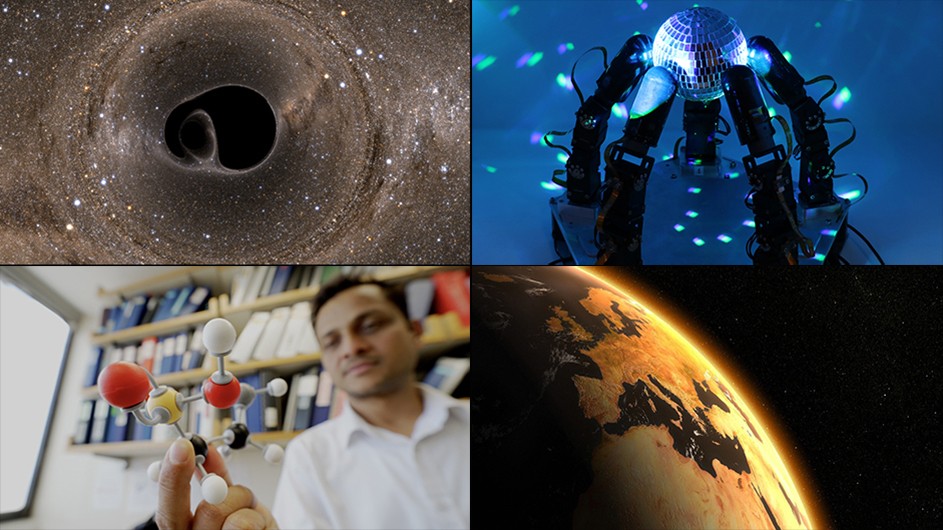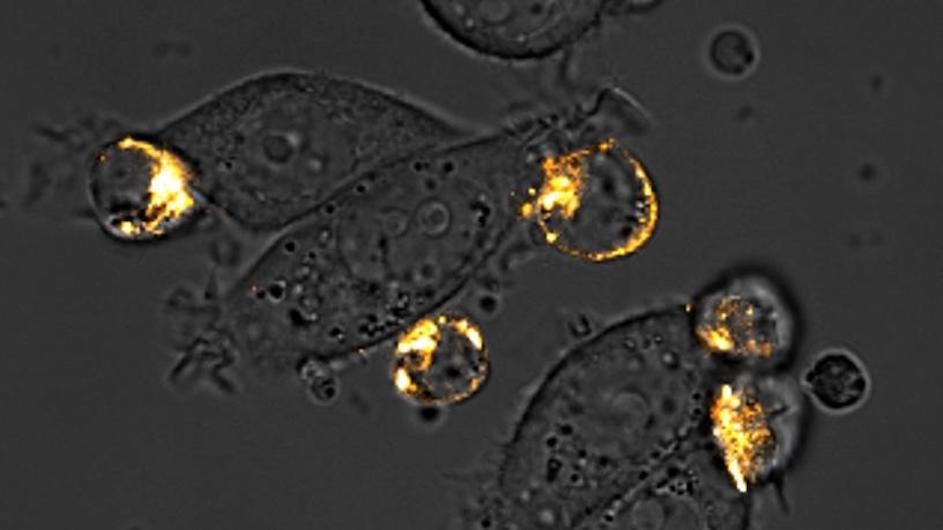12 Columbia Scientific Research Findings That Made a Splash in 2023
The University put out major studies in climate science, public health, neuroscience, and quantum mechanics this year.

Throughout the year, researchers across Columbia—from the Morningside and Manhattanville campuses in northern Manhattan, to the medical center in even-more-northern Manhattan, on up to the Lamont-Doherty Earth Observatory and Nevis Laboratories in (lower) upstate—produce research discoveries that shape their fields. Their findings influence everything from how we understand our solar system and our planet’s changing climate to how doctors treat patients with life-threatening diseases.
From these hundreds of research findings, Columbia News picked 12 noteworthy ones that made a splash this year. Our method for picking this crop was more alchemy than science—based on pageviews, press coverage, and our own instincts—but we hope they give a sampling of the scope and impact of Columbia’s science research output. Check out our thread on X for some more top stories from 2023.
Origins of Pleasurable Touch Traced From Skin to Brain in Mice
Scientists at Columbia’s Zuckerman Institute and two partner institutions reported previously unidentified starting points in the neurobiological pathways underlying pleasurable, sexual, and otherwise rewarding social touch. In mouse studies, they for the first time teased out a full pathway that begins with neurons in the skin that respond to gentle stroking and run all of the way to pleasure centers of the brain.
Restricting Calorie Intake Slows the Pace of Aging in Healthy Adults
ln a first of its kind randomized controlled trial, an international team of researchers led by the Columbia Aging Center at Columbia University Mailman School of Public Health showed that restricting calorie intake can slow the pace of aging in healthy adults.
A New Model to Better Understand What’s Inside Colliding Black Holes
A Columbia professor, postdoc, and alum co-authored a paper that uses new methods to analyze the waves that black holes emit when they collide. The improved model that they developed paves the way for a deeper understanding of the structure of merging black holes, whose contents astronomers analyze by listening to the waves they emit.
Shedding Light on Nursing Burnout
Allison Norful, an assistant professor at the School of Nursing, authored several high-profile studies on burnout in the nursing profession. More than 60% of the healthcare workforce reported some level of burnout or adverse psychological health during the COVID-19 pandemic.
Highly Dexterous Robot Hand Can Operate in the Dark — Just Like Us
Columbia Engineers designed a robot hand that doesn’t rely on vision to manipulate objects. The technology combines an advanced sense of touch with motor learning algorithms in order to achieve a high level of dexterity.

Columbia Scientists Discover That Water Molecules Define the Materials Around Us
A paper published in the journal Nature upended the paradigm that the atoms and molecules that make up the natural world define the character of solid matter, including how pliable it is. The paper argues that the character of many biological materials is actually created by the water that permeates these materials rather than the molecules that constitute them.
Taurine May Be a Key to Longer and Healthier Life
A deficiency of taurine—a nutrient produced in the body and found in many foods—is a driver of aging in animals, according to a study led by researchers at the Vagelos College of Physicians and Surgeons, Columbia’s medical school. The same study also found that taurine supplements can slow down the aging process in worms, mice, and monkeys.
Source of Hidden Consciousness in ‘Comatose’ Brain Injury Patients Found
Columbia medical school researchers have identified brain injuries that may underlie hidden consciousness, a puzzling phenomenon in which brain-injured patients are unable to respond to simple commands, making them appear unconscious despite having some level of awareness. The findings could help physicians more quickly identify brain-injured patients who might have hidden consciousness and better predict which patients are likely to recover with rehabilitation.
Columbia Researcher and NPR Ask Listeners to ‘Walk the Walk’ in Real-World Study
Keith Diaz, an exercise physiologist and researcher at Columbia medical school, designed a study that enlisted NPR listeners as subjects, reporting on how short walking breaks affected their mood and energy levels.

Engineered Bacteria Paint Targets on Tumors for Cancer-Killing Cells to See
Synthetic biologists at Columbia Engineering discovered a way to attack tumors. They engineered tumor-seeking bacteria to paint solid tumors with a synthetic marker, allowing cancer-killing T-cells to recognize, target, and destroy cancerous cells.
A Superatomic Semiconductor Sets a Speed Record
Semiconductors—most notably, silicon—underpin the computers, cellphones, and other electronic devices that power our daily lives, including the device on which you are reading this article. But they lose energy in the form of heat, and they transfer information with limited speed. In a paper in Science, a team of chemists at Columbia led by Jack Tulyag, a PhD student working with chemistry professor Milan Delor, describes the fastest and most efficient semiconductor yet: a superatomic material called Re6Se8Cl2.
World Temperatures Will Blow Past Paris Goals This Decade, Asserts New Study
According to a paper by scientists from a dozen institutions including Columbia’s Climate School, the world’s average temperature will surpass 1.5 degrees Celsius above preindustrial times within the next several years—much faster than most existing forecasts. The study was led by the Climate School’s James Hansen, who as a top NASA scientist famously and accurately warned Congress in 1988 that global warming would soon become evident.